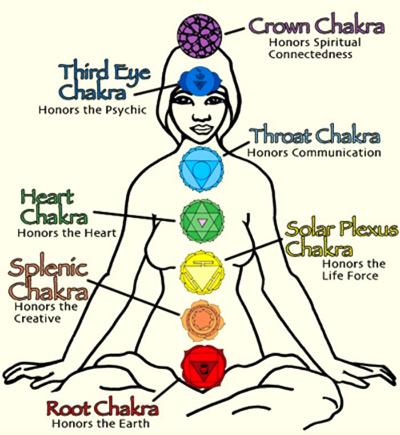In a world increasingly captivated by the allure of mindfulness and inner peace, meditation has emerged as a beacon of tranquility amidst the chaos of modern life. Its promises of clarity, calmness, and connection have enticed millions to embark on journeys inward, seeking not only personal solace but also a deeper understanding of their place in the universe. However, as meditation weaves its way into the fabric of daily existence, a curious question begins to surface: does the practice, often seen as a path to enlightenment, inadvertently foster a sense of spiritual superiority? This article delves into the nuanced relationship between meditation and the human ego, exploring whether the pursuit of transcendence can sometimes lead to an unintended elevation of self-perception. Join us as we unravel this intricate tapestry, balancing on the fine line between spiritual growth and the pitfalls of hubris.
Exploring the Intersection of Meditation and Spiritual Hierarchies
In the realm of spiritual exploration, meditation often serves as a gateway to deeper understanding and personal growth. However, the question arises: does this practice inadvertently foster a sense of spiritual superiority? Meditation, at its core, encourages self-awareness and a connection to the present moment. Yet, as practitioners advance, there’s a subtle risk of perceiving themselves as ascending a spiritual hierarchy, inadvertently measuring their progress against others. This mindset can lead to a paradox where the pursuit of enlightenment becomes entangled with ego, rather than transcending it.
Consider the following aspects that might contribute to this phenomenon:
- Exclusive Experiences: Deep meditative states can sometimes be interpreted as unique spiritual insights, creating a sense of exclusivity.
- Community Dynamics: Spiritual communities may inadvertently rank individuals based on perceived spiritual achievements.
- Misinterpretation of Teachings: The essence of many spiritual teachings is equality and humility, yet misinterpretation can lead to hierarchical thinking.
Ultimately, while meditation can indeed foster profound personal growth, practitioners must remain vigilant against the trap of spiritual elitism. By embracing humility and understanding that each individual’s journey is unique, the true essence of meditation can be preserved, promoting unity rather than division.

Unpacking the Illusion of Spiritual Superiority in Meditative Practices
The serene allure of meditation often draws individuals seeking personal growth and tranquility. Yet, a subtle pitfall can arise when practitioners develop a sense of spiritual superiority. This phenomenon occurs when one begins to view their meditative achievements as a benchmark for measuring others’ spiritual journeys. The illusion of superiority not only contradicts the core tenets of mindfulness but also creates a barrier to genuine connection and understanding.
- Comparison: A key driver of spiritual superiority is the tendency to compare one’s practice with others, fostering a misguided hierarchy.
- Validation: Seeking external validation of spiritual progress can lead to an inflated ego, overshadowing the intrinsic benefits of meditation.
- Isolation: The belief in being more spiritually advanced can isolate individuals from the community, hindering shared growth and empathy.
To navigate this, practitioners can focus on embracing the humility inherent in meditation. By recognizing the unique path each person walks, one can foster a more inclusive and supportive environment, free from judgment and hierarchy.

Cultivating Humility: Mindful Approaches to Avoid Spiritual Elitism
In the quest for spiritual growth, one might inadvertently fall into the trap of feeling superior due to their meditation practice. To counteract this, cultivating humility becomes essential. Here are some mindful approaches:
- Embrace the Beginner’s Mind: No matter how advanced your practice is, maintain a mindset of curiosity and openness. Recognize that there is always more to learn and experience.
- Practice Gratitude: Regularly reflect on the benefits you receive from meditation and express gratitude for the teachings and teachers that guide you. This helps ground your practice in appreciation rather than superiority.
- Engage in Self-Reflection: Regularly assess your motivations for meditating. Are you seeking personal growth, or is there a desire to feel better than others? Honest introspection can prevent ego from overshadowing your spiritual journey.
By integrating these practices, individuals can navigate their spiritual paths with a sense of humility, ensuring that meditation serves as a tool for personal development rather than a pedestal for spiritual elitism.
Recommendations for Inclusive and Egalitarian Meditation Practices
To ensure that meditation remains a practice accessible and meaningful to everyone, it is crucial to embrace approaches that respect diverse backgrounds and perspectives. Here are some strategies to foster inclusivity and equality within meditation practices:
- Adapt Techniques: Recognize that traditional meditation techniques may not suit everyone. Encourage practitioners to modify methods to fit their cultural or personal needs, ensuring that the practice feels authentic and comfortable.
- Language Sensitivity: Use inclusive language that resonates with a wide audience. Avoid jargon that may alienate beginners or those from different cultural backgrounds. Aim for simplicity and clarity to create an inviting environment.
- Community Engagement: Foster a sense of community by organizing group meditations that welcome diverse participants. Encourage sharing of personal experiences to build empathy and understanding among practitioners.
- Educational Resources: Provide access to a variety of educational materials that explore meditation from multiple perspectives. This can include literature, workshops, and talks that highlight different cultural interpretations and practices.
By implementing these recommendations, meditation can become a more egalitarian practice, promoting growth and well-being without perpetuating any sense of spiritual superiority.
In Conclusion
In the vast landscape of spiritual exploration, meditation stands as a beacon, inviting seekers to journey inward. Yet, as we’ve navigated the nuanced question of whether it fosters spiritual superiority, it becomes clear that the answer is as complex as the practice itself. Meditation, at its core, offers a mirror—a reflection of our inner worlds, free from judgment and ego. It is a tool, neither inherently elevating nor diminishing one’s spiritual standing. Instead, it is the intention and approach that shape its impact. As we conclude this exploration, let us remember that true spiritual growth is less about rising above others and more about delving deeper within ourselves. In this journey, humility and openness are our steadfast companions, guiding us toward a more profound understanding of the self and the world around us. Whether meditation serves as a path to enlightenment or simply a moment of peace in a chaotic world, its true value lies in the personal transformation it inspires. So, let us meditate not to ascend above, but to connect, to understand, and ultimately, to grow.
